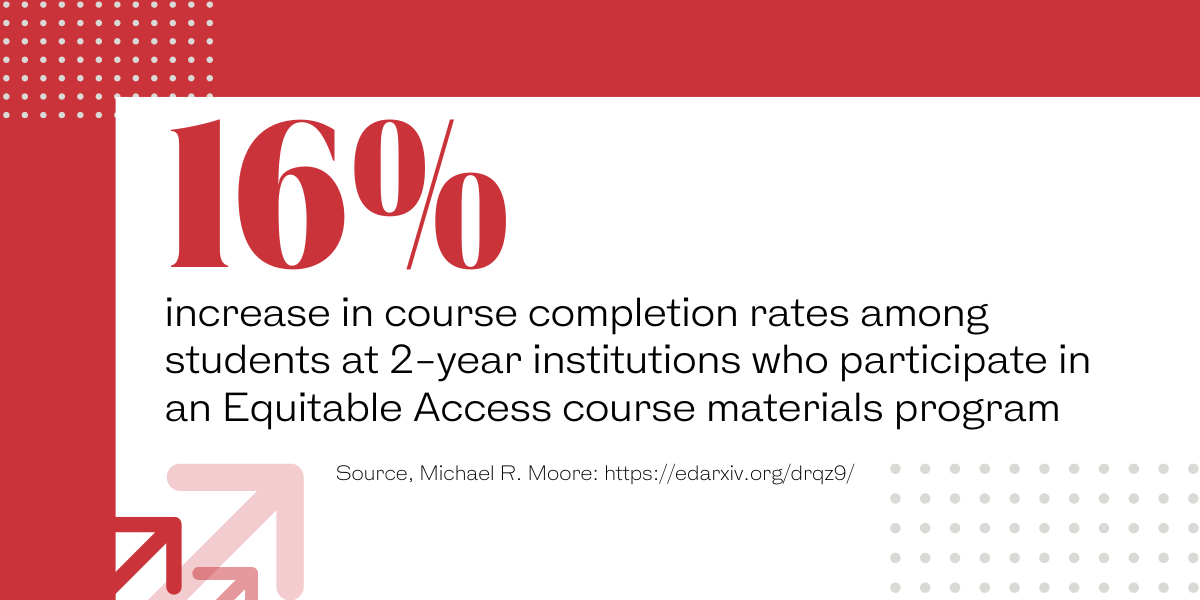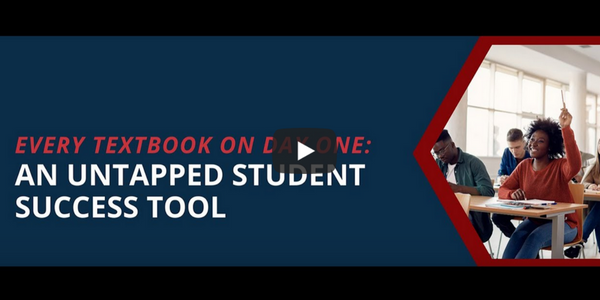How Does Equitable Access Impact Student Readiness and Retention?
Student readiness, success, and retention are key metrics for Academic Affairs offices across higher education. Changing your course material purchase and delivery service might not be the first thing that comes to mind when you’re brainstorming ways to improve those metrics, but it shouldn’t be dismissed.
Today’s college students are accustomed to subscription models and flat-rate fees because so many of them grew up with these services. Equitable Access is an innovative course material delivery model that offers students access to their course materials on the first day of class for one low fee, embedded into the cost of tuition.
Here are some of the top ways implementing an Equitable Access model can positively impact your students:
Student readiness: Equitable Access ensures students have the required course materials before the first day of class. Under this program, students receive their books at a physical address of their choosing or digitally through the learning management system.
Under other models, students are responsible for finding and purchasing their course materials with studies showing that many students opt out of purchasing their required materials altogether. Affordability barriers, confusion around what to purchase and how, and many other reasons can play into this.
An equitable access model guarantees students are prepared at the start of class. Additionally, faculty know their students start class on a level playing field and they can begin teaching on day one.
Student success and retention: A study conducted by Dr. Michael Moore from the University of New Hampshire compared course completion rates for equitable access participants and non-participants at two 2-year institutions. The data shows that students who participated had nearly a 16% higher rate of completion than students who did not participate. The study also found that
the course withdrawal rate for students who participated was 14% less than for students who opted out of the program.
Eliminate out-of-pocket expenses: Equitable Access offers course materials to students at a low flat-fee embedded into tuition. Students can utilize financial aid funds, yet have their materials before the typical fund distribution. Out-of-pocket expenses for course materials can be eliminated with Equitable Access so students can focus on paying for their basic needs.
Transparency: When it comes to the total cost of earning a degree, there are often a number of unknown expenses. Offering transparency and outlining the full cost of college, including course materials, can ensure prospective students, current students, and parents know what to expect before finalizing their plans for college.
The benefits to students when you implement an Equitable Access program are numerous.
Connect with our team and discover how your school can transition to a course materials model designed with the student in mind or read through our Frequently Asked Questions here.
Interested in learning more about how Equitable Access can positively impact your institution's bottom line? Click here to read our recent blog post.



